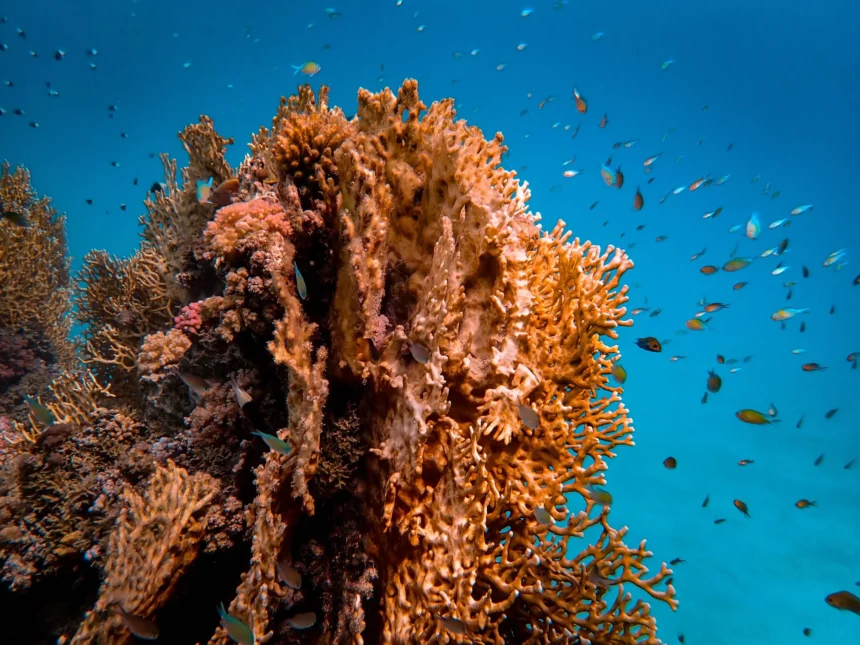Researchers harness the power of AI (artificial intelligence) to monitor coral reefs from space
Coral reefs aren’t just a beautiful natural wonder; they also play a vital role in our underwater ecosystem. Marine species thrive thanks to the ocean’s coral, and it helps protect our coastlines. Like so much of the natural world, however, coral reefs across the planet have been ravaged by mankind’s treatment of the planet. As per Indian Express’ Science Desk, our actions have led to changing water temperatures, ocean acidification, pollution and changes in weather patterns – coupled with unnaturally migrated invasive species, our coral reefs are in a sorry state. Can we use satellites to protect coral reefs?
“Coral reefs protect coastlines from erosion and can support more species per unit than any other marine environment.”
– Indian Express’ Science Desk
According to the NOAA (the United States’ National Oceanic and Atmospheric Administration), the world has already lost at least a third of its reefs already. Now, researchers at the University of Hawaii at Manoa are utilising the seemingly limitless scope of AI (artificial intelligence), to measure the effects of climate change on our coral reefs in real time, hopefully giving us more opportunities to protect the sanctity of our seas.
The university’s scientists are monitoring so-called reef halos, ring-like patterns of sand which can be easily seen using satellite sensors. They’re “important indicators of the health and vitality of coral reefs, but until now, their measurement and tracking has been a challenging and time-consuming process,” a research fellow at the Madin Lab in the Hawaii Insitute of Marine Biology, recently announced in a press release.
How Hawaii’s Institute of Marine Biology can use satellites to protect coral reefs
Simone Franceschini is a postdoctoral research fellow and the lead author of a new study published in the Journal for Remote Sensing of the Environment. She and her team have harnessed AI imaging software to turn the focus towards reef halos; also known as grazing halos, they’re a curious phenomenon.
“Fish and sea urchins that live within the reefs gobble up anything that grows nearby, leaving bare sand behind. But these grazers are loathe to venture into the open; Their fear keeps them close to the reef, and their hunger keeps that zone free of greenery.”
– The Atlantic
Franceschini and her team have taken it upon themselves to identify these prospering areas of patch reefs, but it’s not always easy – they’re often complex ecological patterns and required researchers to combine various deep-learning algorithms to seek them out. They can be faint, and hard to distinguish. Their AI models are now available as part of a free online service, which will allow conservationists to keep an eye on reef halos, without having to parse through insurmountable amounts of data! What’s more, the Madin Lab’s tech has proven to be accurate at least 90% of time time.
It’s a fantastic application of artificial intelligence that boosts our potential to protect the planet, rather than threaten it. Ultimately, this is what AI should be being used for: uniting workers from across disciplines in aid of a greater cause.
Simone Franceschini’s is a stark relief for reefs the world over.
—
Source: https://indianexpress.com/article/technology/science/ai-coral-reef-monitoring-satellite-8616352/ Additional research: https://www.theatlantic.com/science/archive/2019/04/mysterious-halos-surround-coral-reefs/588097/
Photo courtesy of Francesco Ungaro from Pexels.
Heard of any other ways emerging tech is serving the natural world? Sound off in the comments below!
Want to hear more about how satellite technology is changing the world for the better? Click here: Can We Make Space Travel Less Harmful? Fleet Thinks So!










